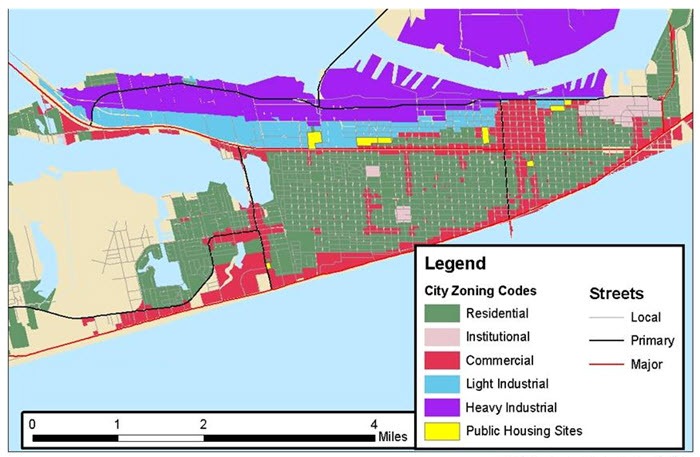What Are Zoning Laws?
‘Zoning laws are critical’: Are you allowed to build an extension — or list your home as a short-term rental?
- Zoning refers to a set of regulations that restrict how property can and cannot be used. It can also mean regulating the size, shape, and scale of the buildings on a certain property within a specific geographic area.
- Zoning laws can protect and enhance the value of real estate and prevent the incompatibility of different land uses. Most importantly, zoning laws can help accomplish the overall goals of a given community and stimulate economic growth.
- A property can be zoned both commercial and residential. Zones are typically categorized into single-use or mixed-use properties.
- You may also be able to find a list of zoning ordinances and zoning maps on your local government’s website.
How Do Zoning Laws Work?
Zoning laws are made by branches of local government, municipal corporation, or a county. When an area is deemed a zoning district, there will be specific regulations on how a property owner can use the land within a zone.
For example, there may be a zone designated for a particular residential style, such as single-family homes. In another zoning district, there may be a commercial designation for businesses. Of course, there can be some zoning districts determined to be mixed-use – both commercial and residential.
It’s possible that visions for a certain community will change over time, or for property owners to request an exception for a certain project. For example, if a property owner would like to start a home-based business, they can request an exception that would allow that business to run within a residential zone.
To do so, property owners can apply for a variance that may warrant an exception from some municipalities. In most communities, those impacted by the proposed amendments can voice their concerns or approval at a public hearing. However, each municipality has its own process. If you’re interested in proposing an amendment, you should reach out to your local government for the next steps.
It’s important to recognize that zoning laws are different from the rules made by homeowner’s associations (HOAs). Although the rules of an HOA can affect your property usage, the rules are not made by a local government.
What Is the Purpose of Zoning?
There are several different purposes for zoning depending on the type of property. In the past, zoning has been viewed to protect the integrity of the community. Many communities view zoning laws to ensure that residents don’t have to deal with loud noise levels or high traffic areas.
Zones can protect important natural and historical resources and ensure that facilities that risk the health and safety of a community’s occupants aren’t established near a residential neighborhood. Zoning laws can also require that buildings have an adequate level of natural lighting, air quality and even privacy.
Commercial zoning might serve different purposes. Commercial zoning laws might restrict the type of business operating within that area. For established businesses, these laws might regulate the number of parking spots available, usage of signs and access to exits and fire escapes. Each law is intended to maintain the integrity of the community and regulate growth.
Types of Zoning Restrictions
Residential
The residential dwelling units that people call home can look dramatically different throughout a municipality. With that, a local government will create several zones that encompass distinct types of dwellings. Here are a few types of housing units that can fall into a residential zone.
- Single-family residences
- Suburban homesteads
- Apartments
- Trailer parks
- Condos
- Home-based businesses
The zoning ordinance will determine common items that create a cohesive area such as
- The number of, if any, animals allowed at the residence
- Encumbrances such as the number of structures allowed on the property
- The allowance of placements of manufactured homes
- Whether or not a multi-family home can be built on the property
Commercial zoning laws affect businesses and include:
- Office buildings
- Shopping centers
- Hotels
- Nightclubs
- Restaurants
- Vacant land with the potential for business development
Industrial zones encompass businesses that work in an industrial capacity such as warehouses, manufacturing, airports, and storage facilities.
Historic – older municipalities with significant historical sections use this zoning strategy to provide protection for these buildings. Buildings with historical significance within this zone could be subject to tax deductions.
If you need zoning information or mitigation on the Texas coast, we’re the guys that can help!
Rather than visiting outdated and difficult city websites, or waiting in line at city offices to find zoning maps and updates, we can get you permitted land uses, lot sizes, building heights, rental restrictions, municipal codes, international building codes, elevations, construction standards, environmental, windstorm, etc.
We have experience with residential homes, businesses, hotels, communities, high-rises, marinas, and even water parks on the Texas coast!



Leave a Reply
You must Register or Login to post a comment.
Become a registered member, it is fast, fun, and free! Gain access to sales analysis, conversations, and much more! Texas state law requires membership before we can share sales information or talk about subjects relevant to ownership. See our membership page for more details.